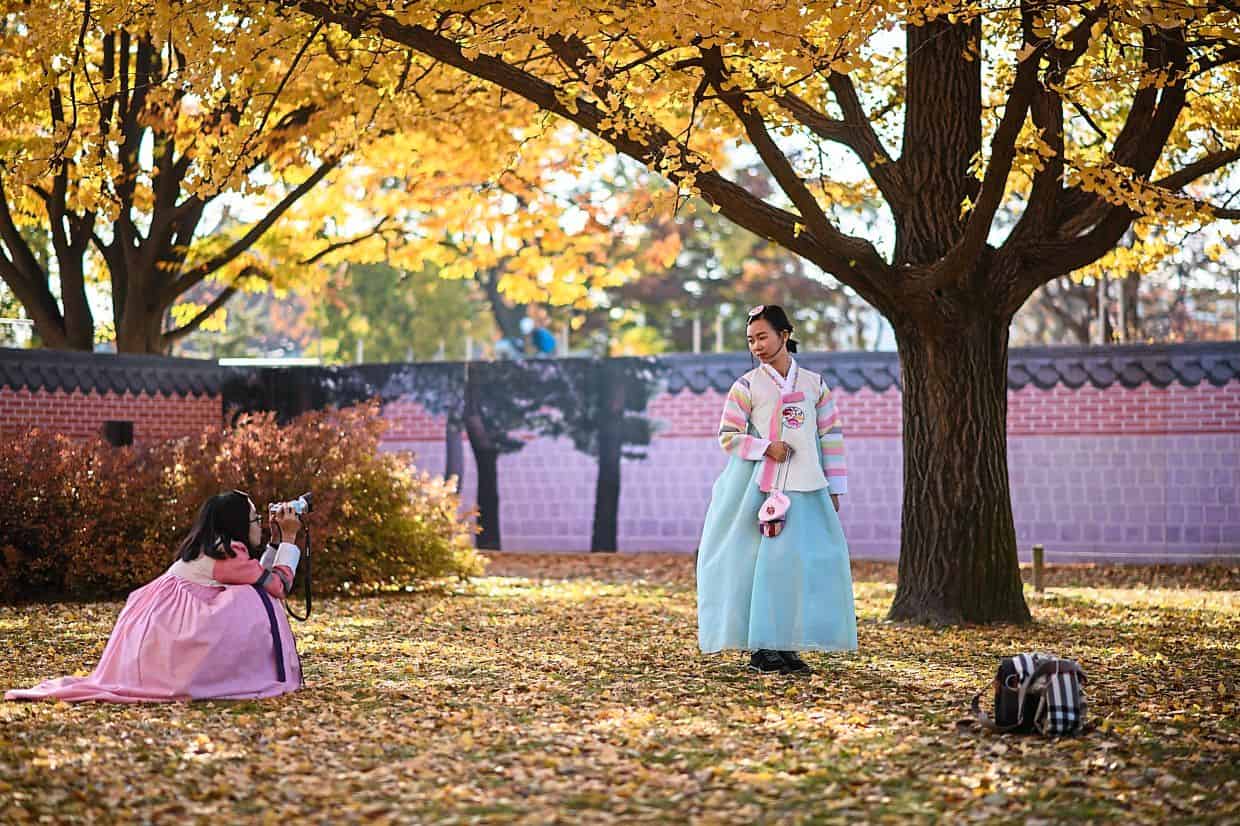
TOPSHOT - Visitors wearing traditional hanbok dress pose for photos beneath ginkgo trees at Gyeongbokgung palace in Seoul on October 31, 2018. (Photo by Ed JONES / AFP)
Fans of K-pop now have another cause to be proud of their devotion, thanks to the success of Netflix’s popular and trending programme Squid Game. The Oxford English Dictionary recently expanded its lexicon with the addition of 26 Korean terms. Since recently, there has been a surge in interest in Korean dramas, music, and cuisine throughout the world.
Though Korean terms have been in the OED since the 17th century, the present attestations add to the ‘hallyu’. One of the Korean phrases included in the dictionary — hallyu or Korean wave — refers to an increase in international interest in South Korea, including popular culture, “particularly as reflected by the global success of South Korean music, cinema, television, fashion, and food,” according to the statement.
Konglish (noun and adjective) -A language that combines aspects of Korean and English, notably an informal hybrid language spoken by Koreans.
Manhwa (noun) -A Korean cartoon and comic book genre influenced heavily by Japanese manga.
Hanbok (noun) -A traditional Korean garment consisting of a long-sleeved jacket or top and a long, high-waisted skirt for ladies or loose-fitting pants for men, and used mostly for formal or ceremonial events.
Many terms relating to Korean food are included in the list. Here are a few examples:
Galbi (noun) — A dish of beef short ribs marinated in soy sauce, garlic, and sugar and occasionally grilled at the table in Korean cuisine.
samgyeopsal (noun) — A Korean dish consisting of thinly sliced pork belly that is served uncooked and cooked on a tabletop grill by the customer.






